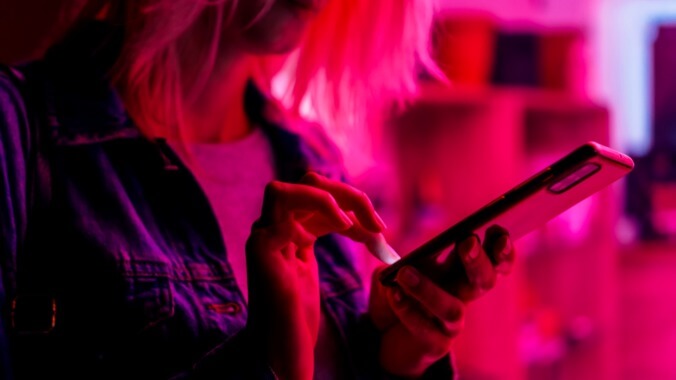The Viral Crashout That May Change TikTok for the Better
The TikToker who fell in love with her psychiatrist made headlines for all the wrong reasons—but more and more, I saw a growing chorus of content creators who were asking people to stop, think, and scroll away.
Photo: iStockphoto In Depth
Earlier this month, on TikTok, an alarming yet familiar story began to unfold. “I fell in love with my psychiatrist, and he knew and he kept me until I had the strength to leave after four years,” 36-year-old Kendra Hilty began in a video that would eventually become the viral “I Fell in Love with My Psychiatrist” series. Almost immediately, viewers clocked that Hilty was in the middle of a crashout.
Hitly’s emotional, public breakdown—in which she misinterpreted a normal therapeutic relationship as dripping in romantic subtext—was quickly labeled as “delusional.” But, even though she was very clearly posting through a mental health crisis, and possibly experiencing symptoms of AI-induced psychosis (as evidenced by her AI Chatbot Henry gassing her up as some kind of messiah), TikTokers were happy to go along for the 34-part ride.
Until they weren’t.
@sarahmsiegelThe woman in love with her psychiatrist is not well. don’t know how this isn’t clear.♬ original sound – sarah siegel 🇨🇦
As someone who covers internet culture here and on my podcast, I admit, I watched Kendra’s story from the beginning. But what interested me most wasn’t that someone’s mental health was falling apart in real time, but that, as Kendra’s story progressed, TikTok started talking about it differently. “It is very clear that Kendra is not OK mentally,” creator Cindy Noir said in one video, “and I refuse to use my platform to egg on a clear mental health episode.” As always, some content creators tried to capitalize on Kendra for themselves, with “explainer” videos, POV characters, or, in one particularly gross case, a roundup of her “most delusional moments.” But more and more, I watched a growing chorus of content creators who were asking people to stop, think, and, perhaps most powerfully, scroll away.
-

-

-

-

-

-

-

-

-

-

-

-

-

-

-

-

-

-

-

-

-

-

-

-

-

-

-

-

-

-

-

-

-

-

-

-

-

-

-

-








































